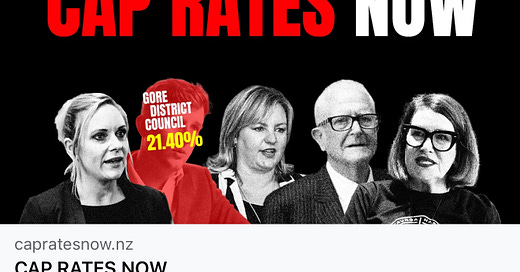I get it, rates increases are a pain. And for most Council’s they’ve been high and that hurts - especially those on a fixed income. High rates increases are also one of the factors that is making inflation “sticky”, as Stats NZ call it.
And this has, in part, led to campaigns from the Tax Payers Union which is readily taken up by the hard right groups trying to pass themselves off as ratepayer advocacy groups. And that’s an issue.
A rates cap under the current regime would cause cuts to what we think of as essential services provided by Councils - like roads, water infrastructure, libraries, food safety certification, alcohol licensing, animal control, noise control - there’s a lot of things Councils do.
But these cost money and the tools for Councils to raise revenue are limited.
This is a bit of a multi-pronged issue, so let me see if I can sum it up.
Council’s have costs - and like the average consumer costs have increased over the past 10 years, but for the things Councils buy, like infrastructure materials, that rise has been exponentially higher than the Consumer Price Index. In 2019, the cost of infrastructure materials increased by 41% - covid was a part of that since China is both the largest exporter of and user of infrastructure materials but the costs had been increasing throughout the year due to a bit of a boon in public projects around the world. And infrastructure industrial inflation has always tracked higher than CPI - at our highest rate in the past decade, 7.2% for CPI saw the infrastructure industry with an inflation rate of 12%.
Keep reading with a 7-day free trial
Subscribe to Paul... The Other One to keep reading this post and get 7 days of free access to the full post archives.





